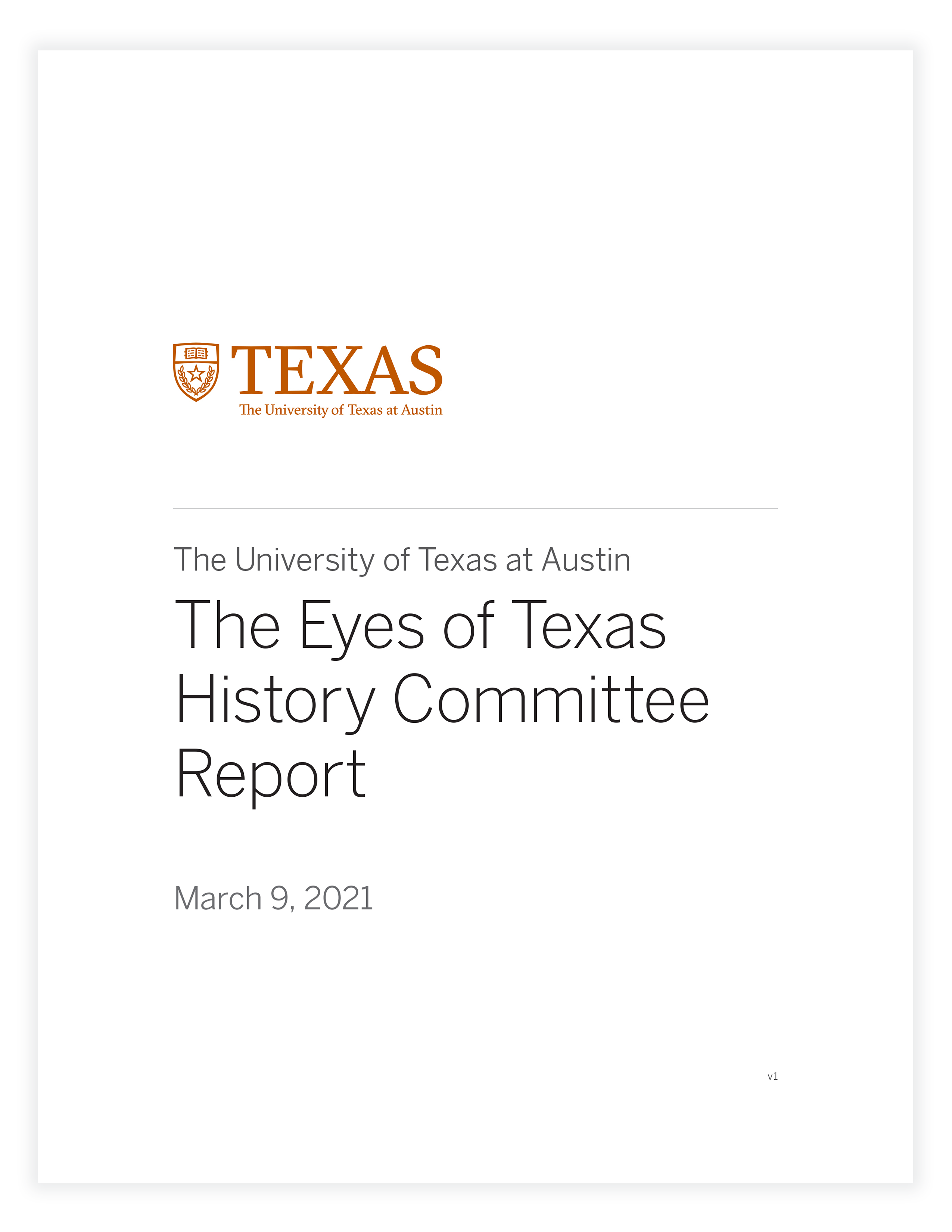Milestones
1903
“The Eyes of Texas” is debuted on May 12, 1903, at a minstrel show organized to raise money for UT’s track team. This was not an institutional use.
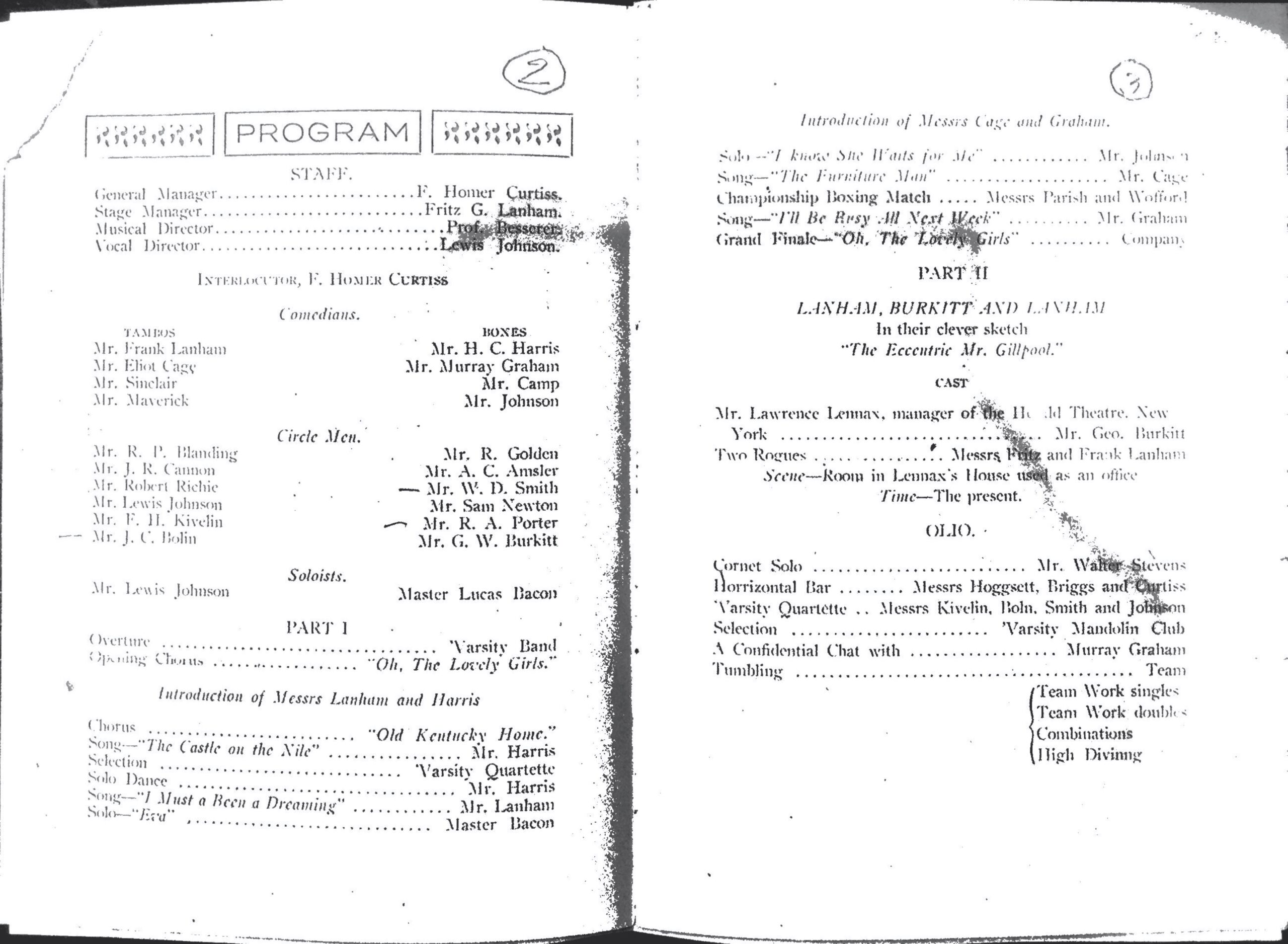
1903
President Prather’s commencement address ends with “The Eyes of Texas are upon you. Till Gabriel blows his horn.”
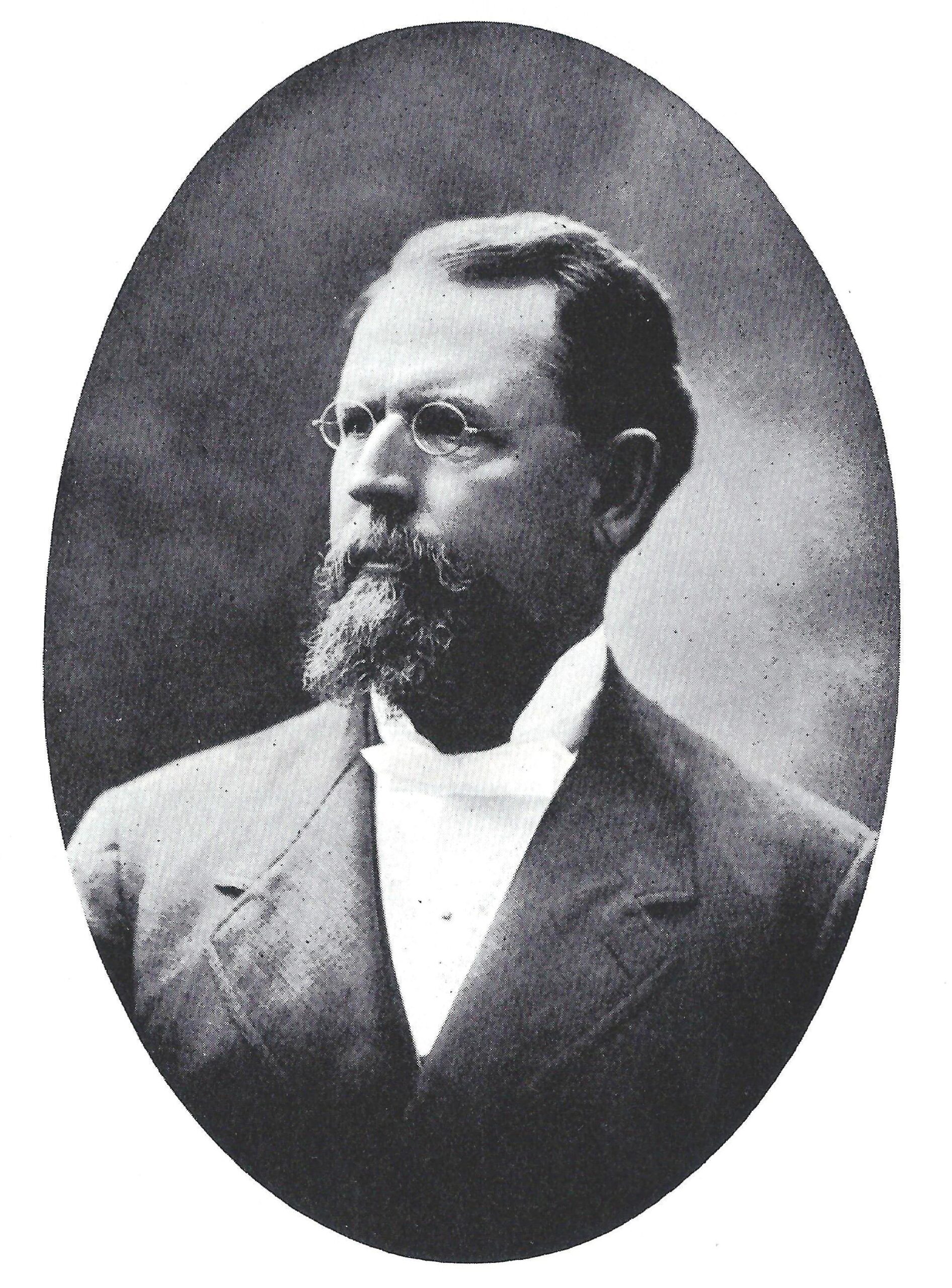
1903
The song is sung spontaneously by the UT student section at the Thanksgiving Day Texas vs A&M game after the Longhorns win. Tradition of staying on the field “win or lose” to celebrate the heroes of the game is born.
1904
At an assembly to commence the 1904-05 academic year, President Prather left out his famous phrase. Governor Lanham spoke immediately afterward and commented, "I felt [Prather] ought to have concluded his address with, 'young ladies and gentlemen, the eyes of Texas are upon you.'"
1905
President Prather died unexpectedly early in the morning of July 24, 1905. The song was sung at his memorial service in the auditorium of Old Main, and it's there that it evolved into an "anthem."
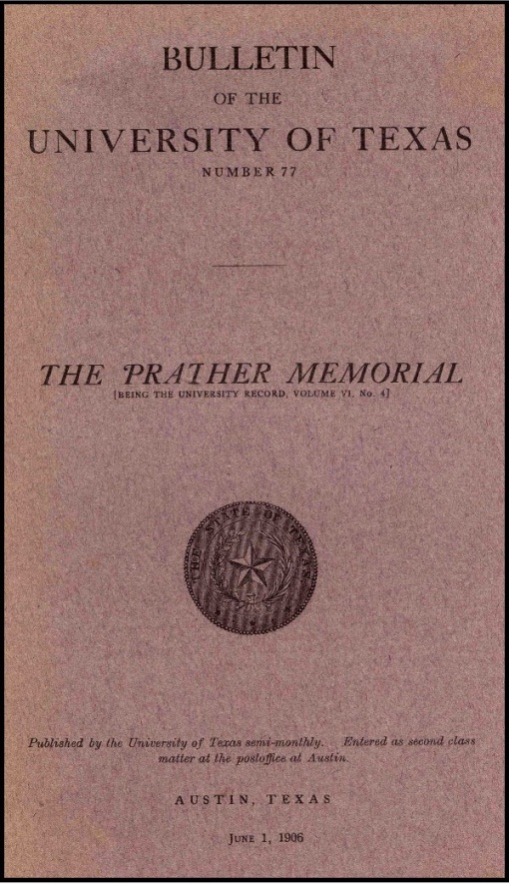
1908
“The Eyes of Texas” is first printed in The Cactus.
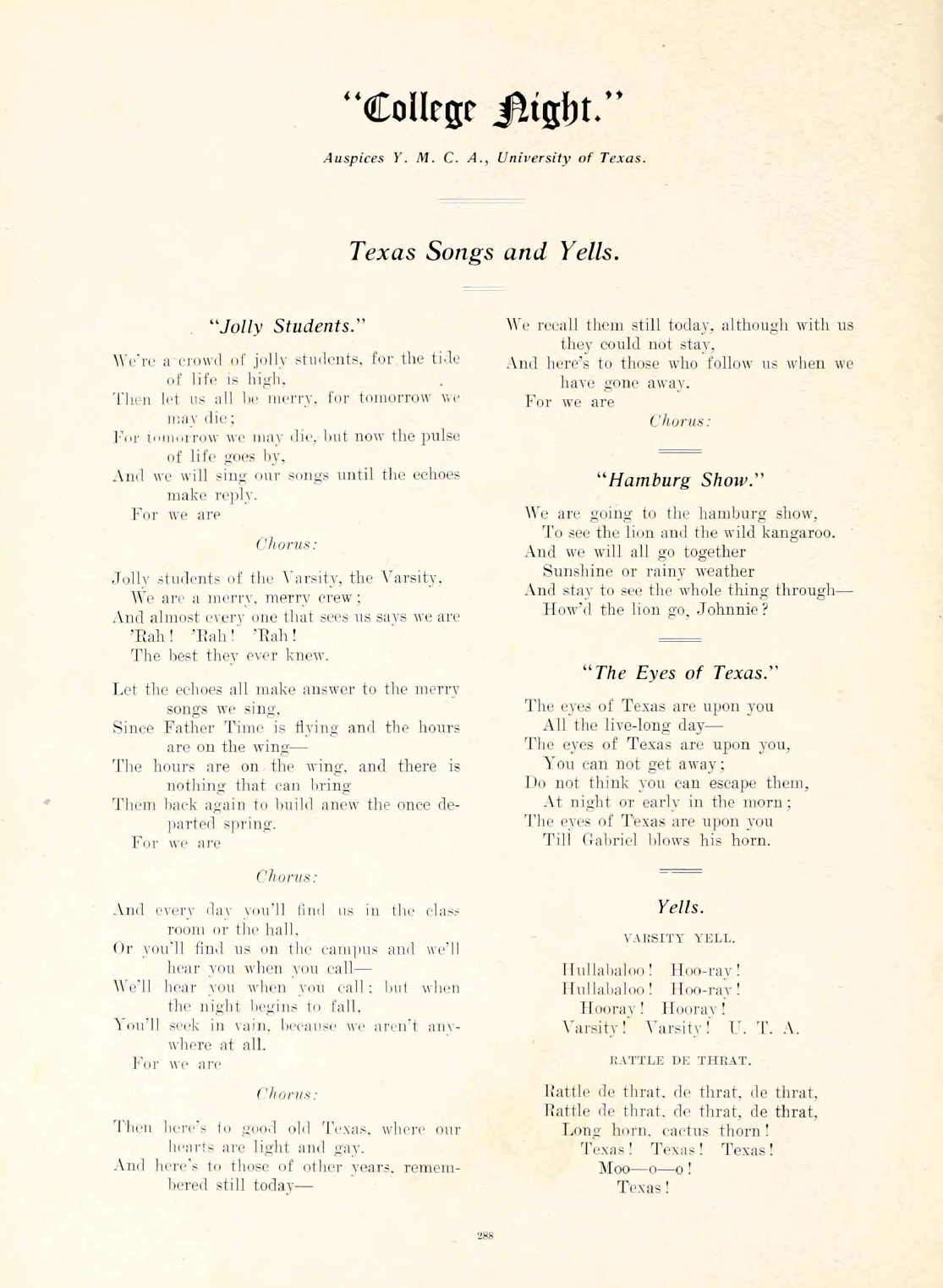
1911
First usage of “The Eyes of Texas” for a legislative function as students welcome state legislators to campus and serenade them.
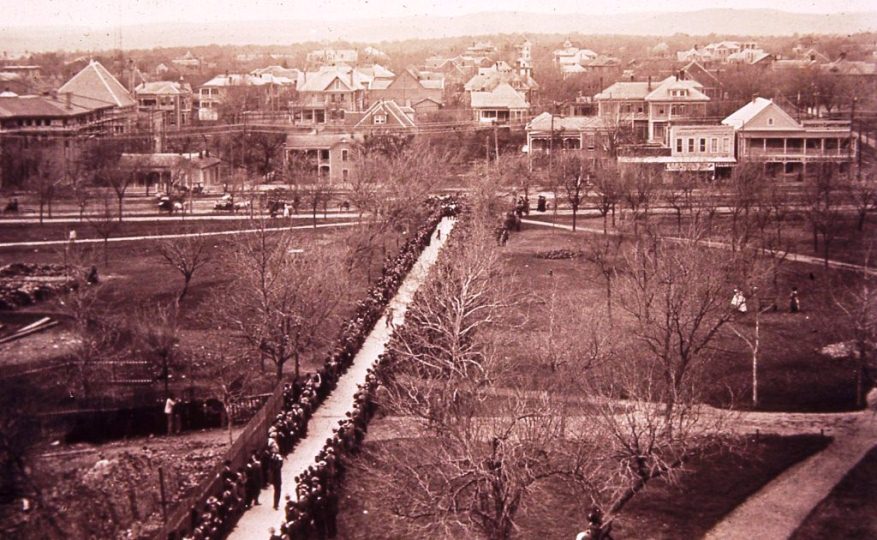
1913
Students protesting a bad performance by a hypnotist created “The Eggs of Texas” by chasing the performer out of the arena with eggs.
1915
Rupert Robertson in his, “Some University Football Customs,” states “The Eyes of Texas are Upon You” is sung at the kick-off of football games.
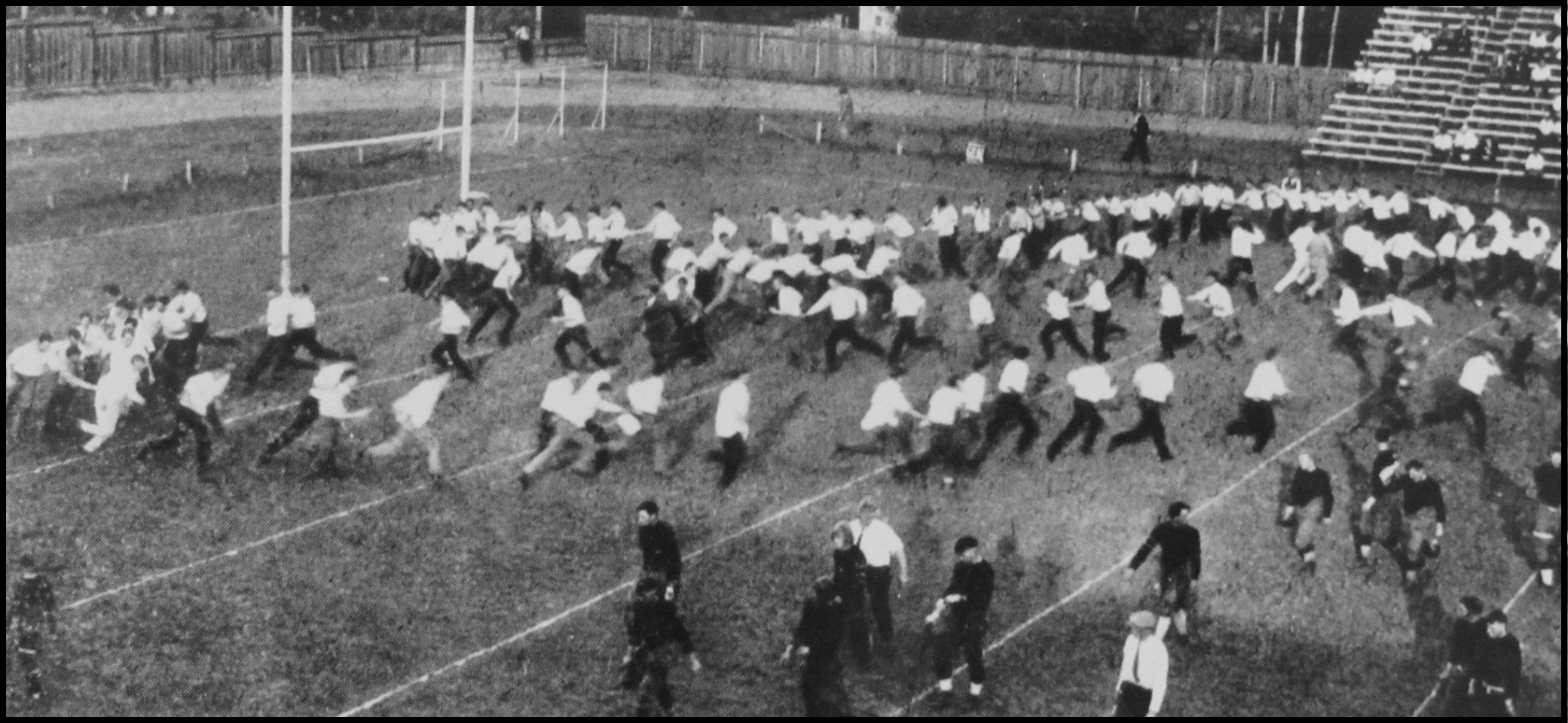
1916
Women sing the song and have a voice for the first time at a football game.
1917
In May, “The Eyes of Texas” plays while students march in protest of Gov. James Ferguson’s veto of the UT budget.
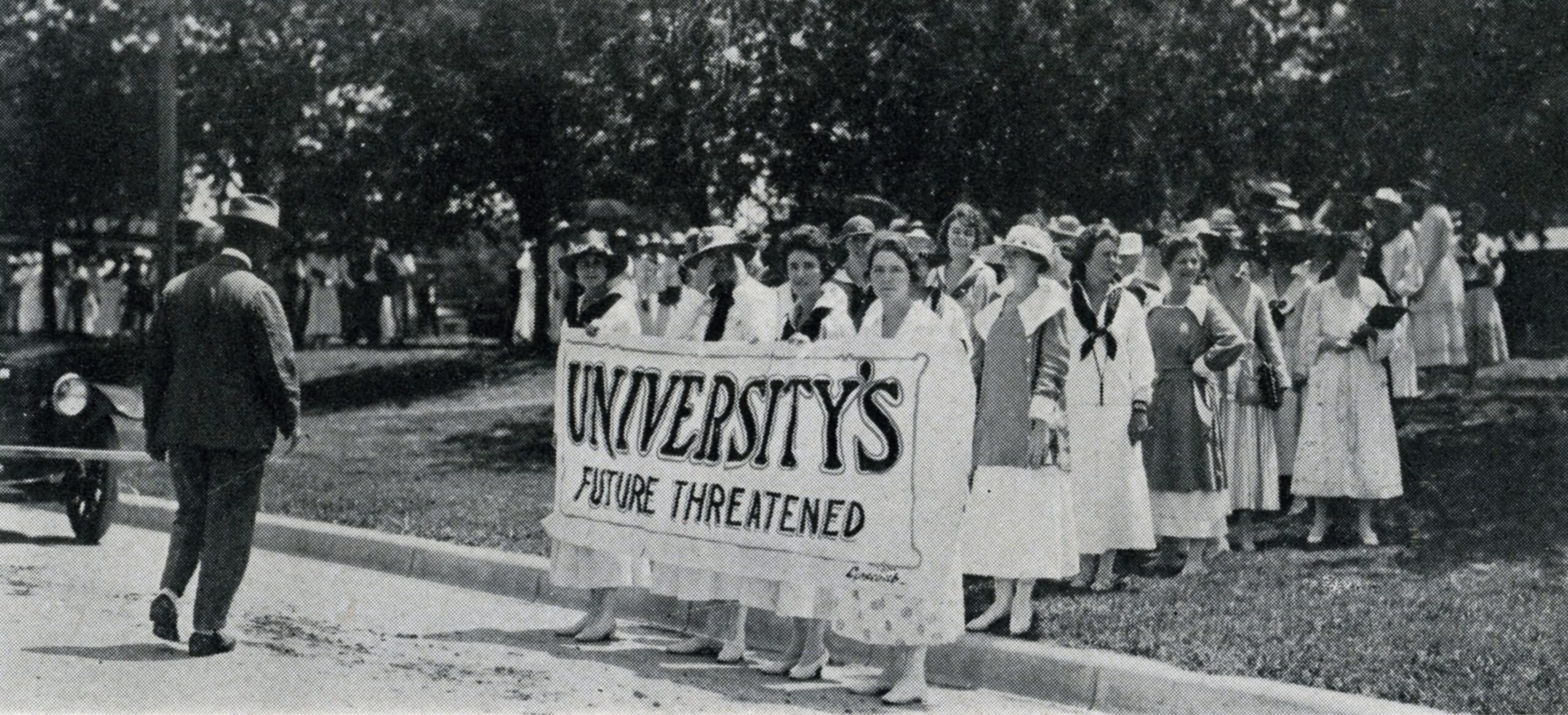
1918
“The Eyes of Texas” is first published in the UT Community Songbook.
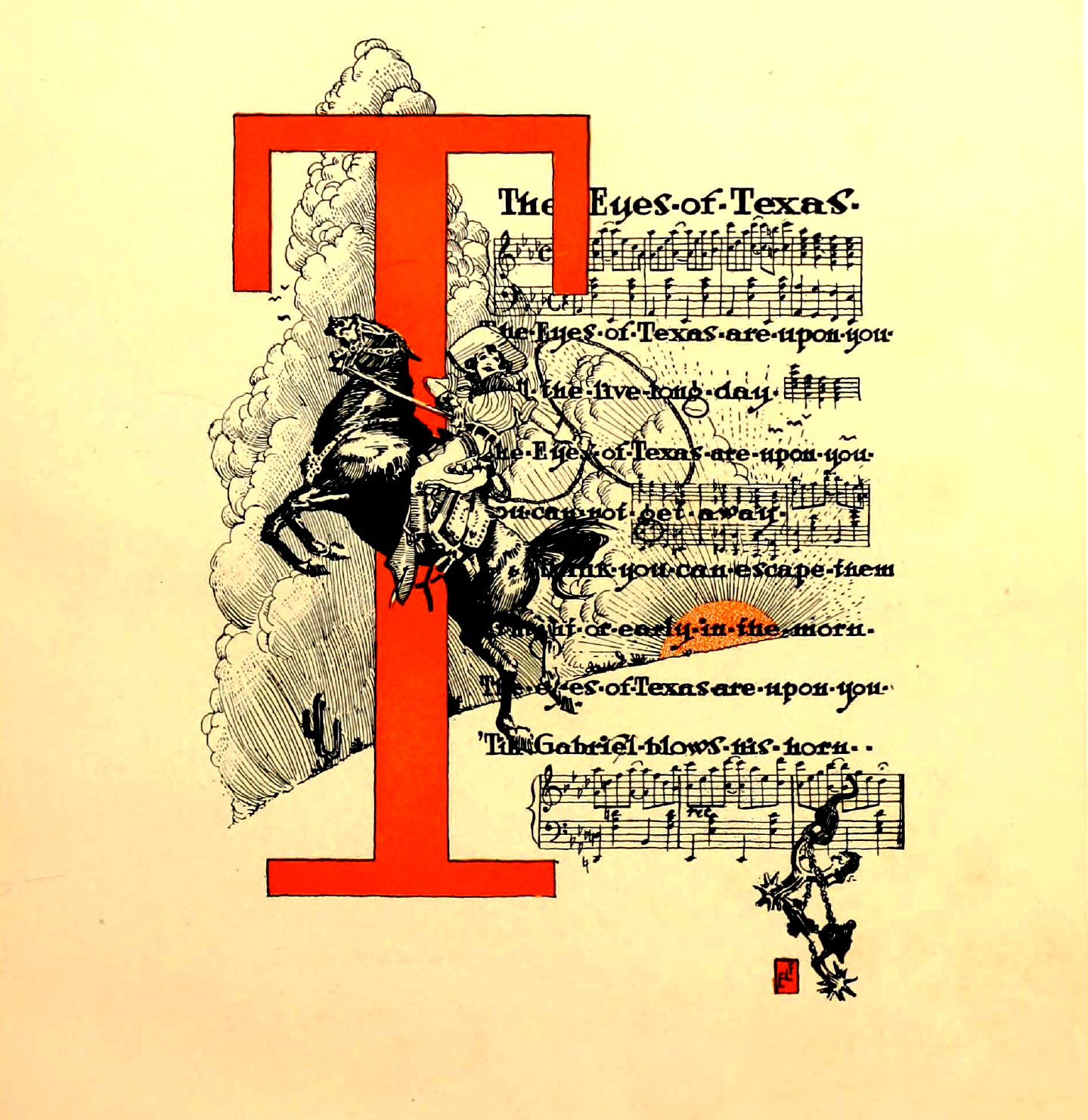
1920
“The Eyes of Texas” is used as part of promotional materials for the women's suffragist movement. The song is fully integrated into all parts of university life.
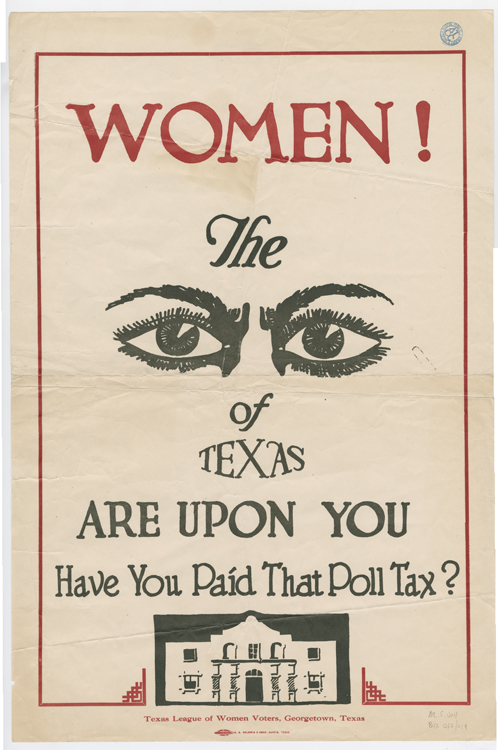
1925
The first attempt is made to make it the state song.
1928
First known recordings of “The Eyes of Texas” and “Texas Taps” – San Antonio, on RCA Victor record label
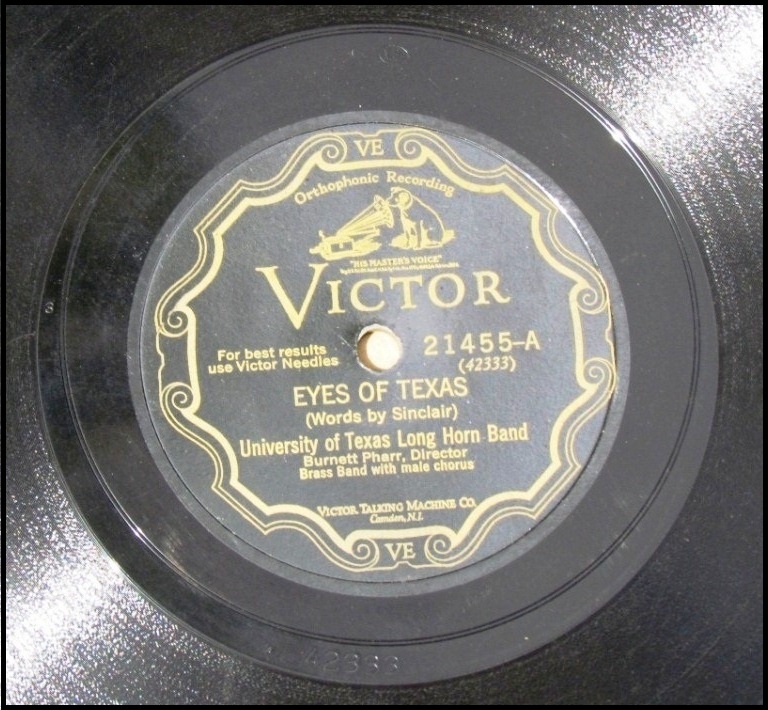
1928
The SMU band performs “The Eyes of Texas” in a game against West Point, with the belief that the song belonged to the state of Texas.
1930
The university administration selects it as one of the songs played on the new carillon bells. President H. Y. Benedict had it translated into 10 languages.
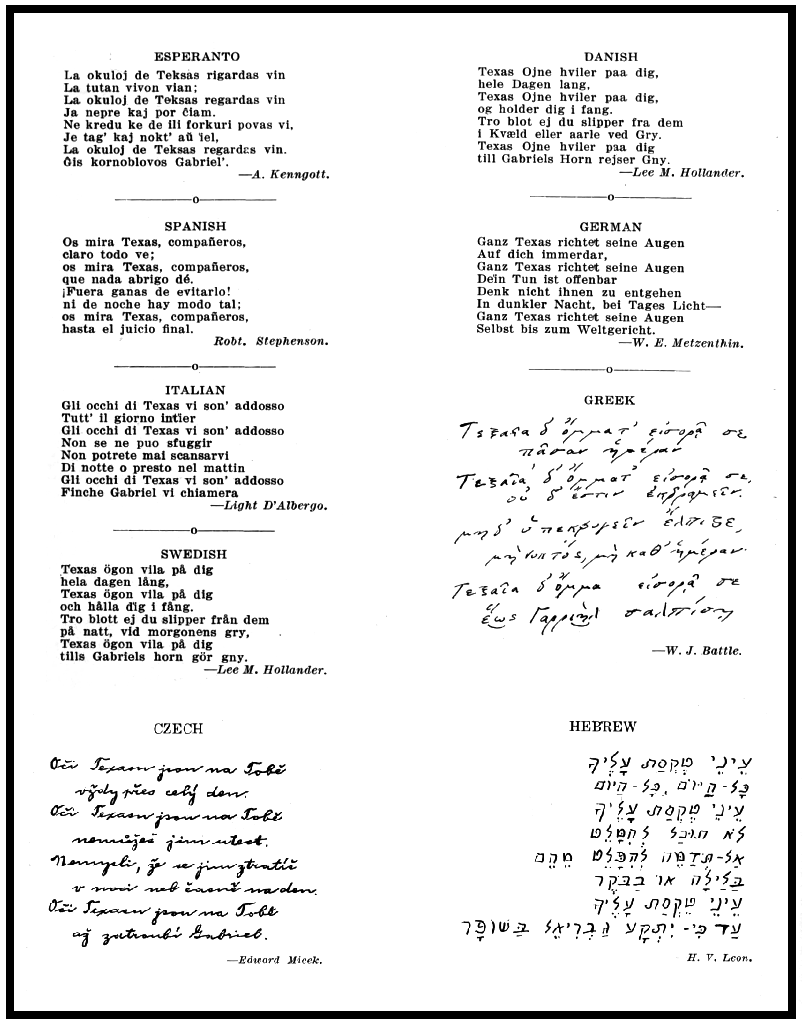
1933
World’s Fair in Chicago, visitors to the Texas Exhibit stepped onto a faux balcony to gaze out toward an image of the Texas Capitol with the phrase “The Eyes of Texas are Upon You” above it.
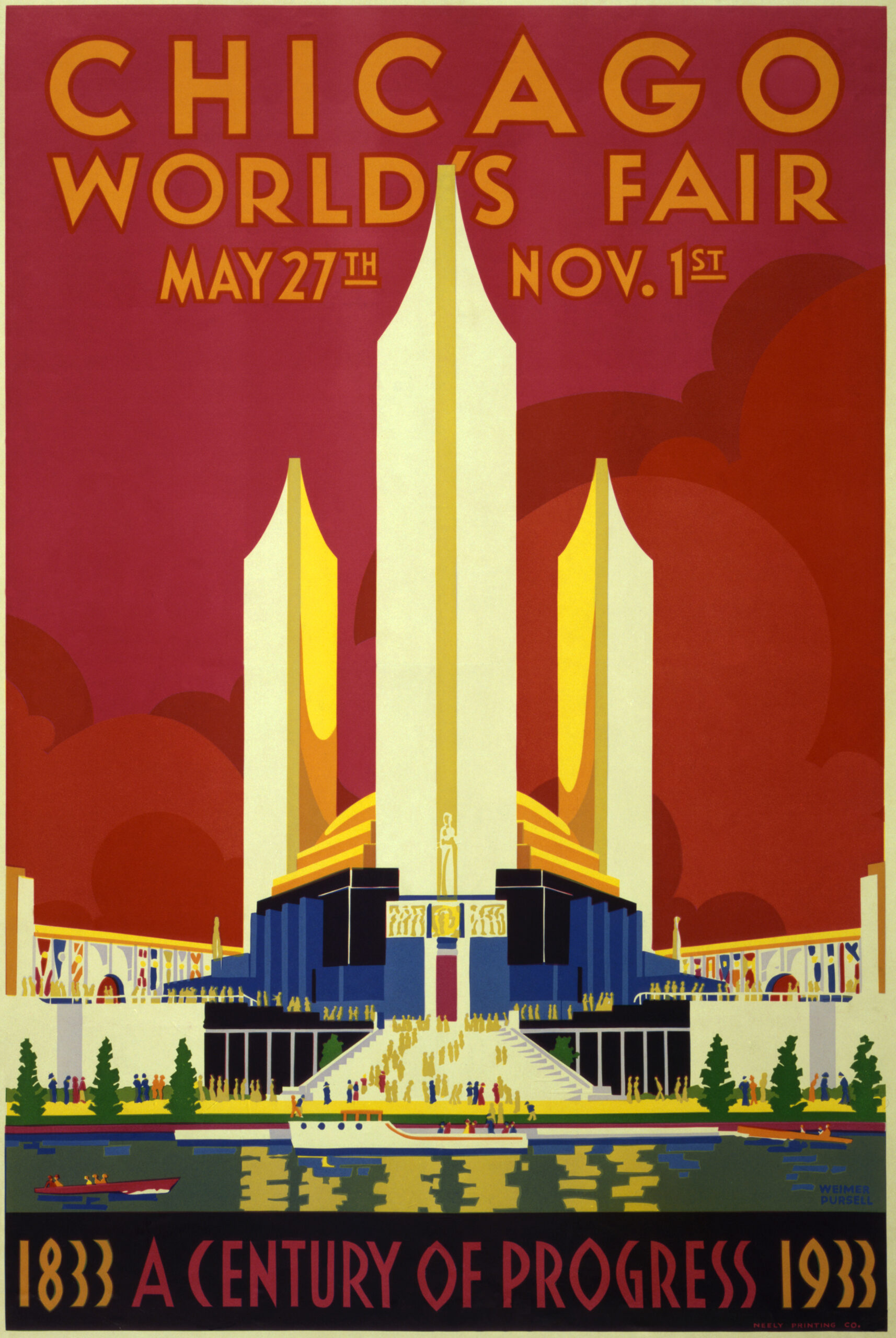
1935
In a letter written to music arranger and publisher Oscar Fox (a UT grad) who controlled the copyright, President H. Y. Benedict referred to the song as a “sacred tradition” related to UT’s “honor and reputation.”
1936
Texas Union opens with the words “The Eyes of Texas Are Upon You” etched in the building.
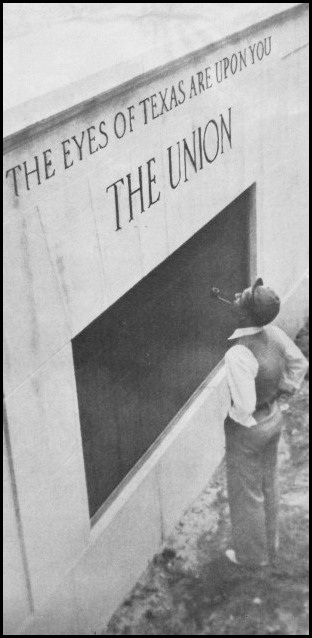
1936
The Longhorn Band performs the song in Madison Square Garden and the White House during its Texas Centennial concert tour. NBC Radio plays the song on national radio.
1936
The Student Assembly copyrights the words and the arrangement and holds the copyright for 28 years.
1940
“The Eyes of Texas” is sung as an alma mater after the Cowboy Minstrel show.
1941
The Alcalde publishes a special “Eyes of Texas” section focused on those Texans captured, missing or killed in the war.
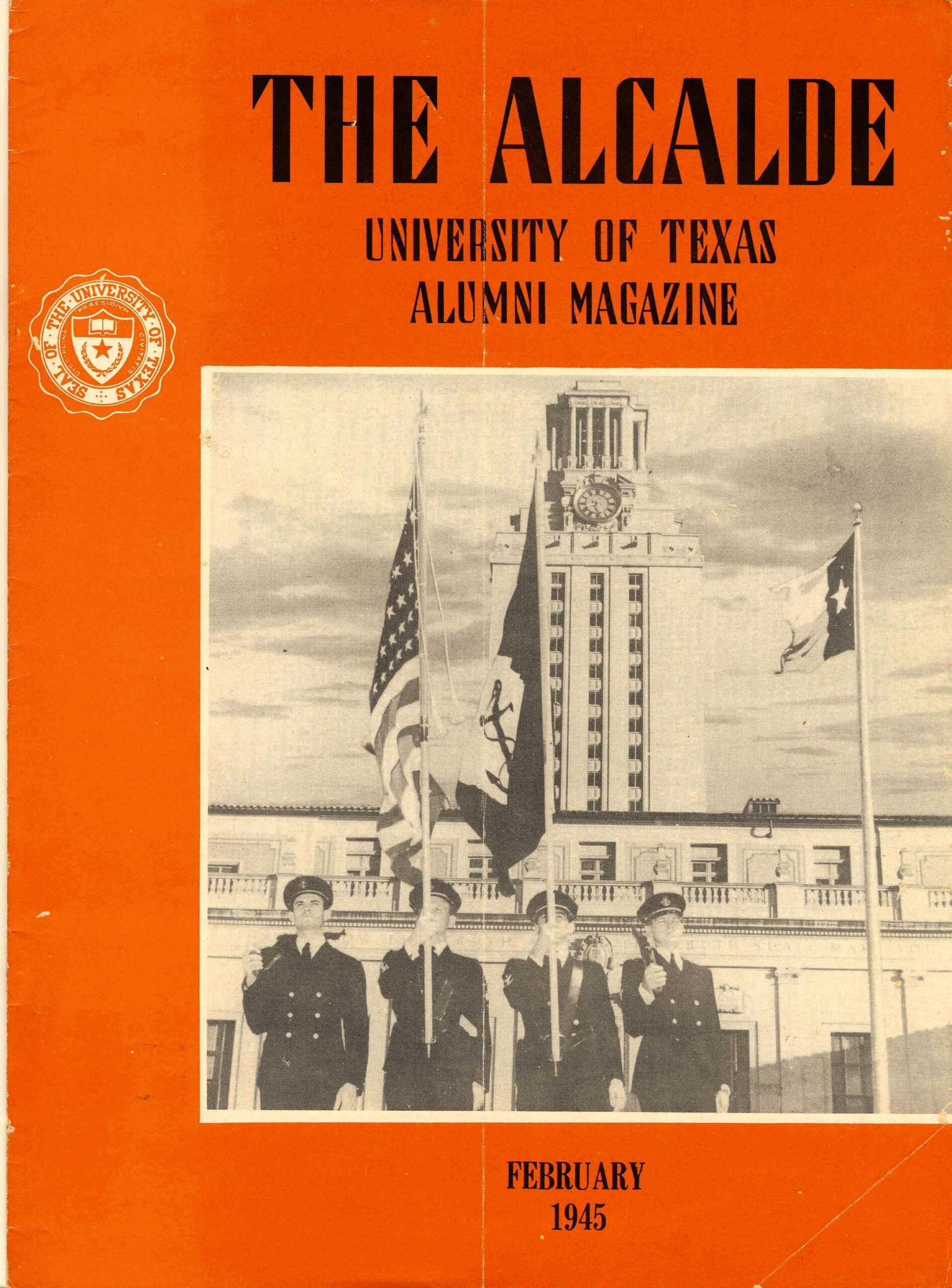
1943
In the Battle of Tarawa, a New Yorker refuses to leave a wounded Texan serviceman and sings the first line of “The Eyes of Texas” to give him strength to get to safety.
1943
Spontaneous campus singing of “The Eyes of Texas” begins as the war-time blackout is lifted over Austin.
1944
“The Eyes of Texas” is sung at gatherings across the world to commemorate Texas Independence with events in North Africa (150 people), Hawaii (8,000) and Italy, where it was treated like the national anthem. Admiral Nimitz speaks to troops and ends his remarks with “The eyes of Texas are upon you.” German prisoners in Tunisia are overheard singing “The Eyes of Texas” while marching.
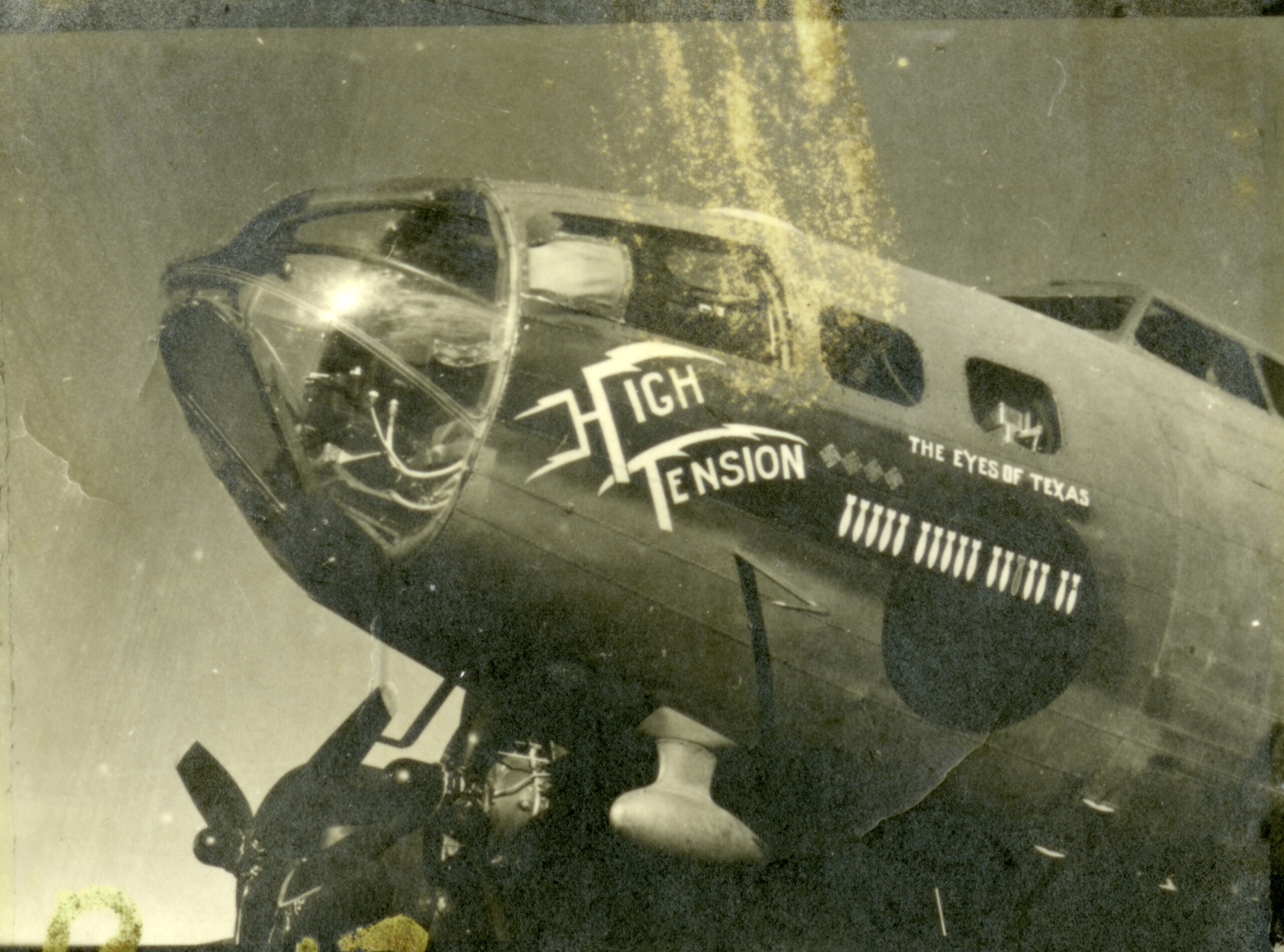
1944
Some 5,000 students protesting President Homer Rainey’s firing sing “The Eyes of Texas” in the rotunda at the Capitol. Nearly the full student body, using “The Eyes of Texas” as a “funeral dirge” protest the “death of academic freedom.”
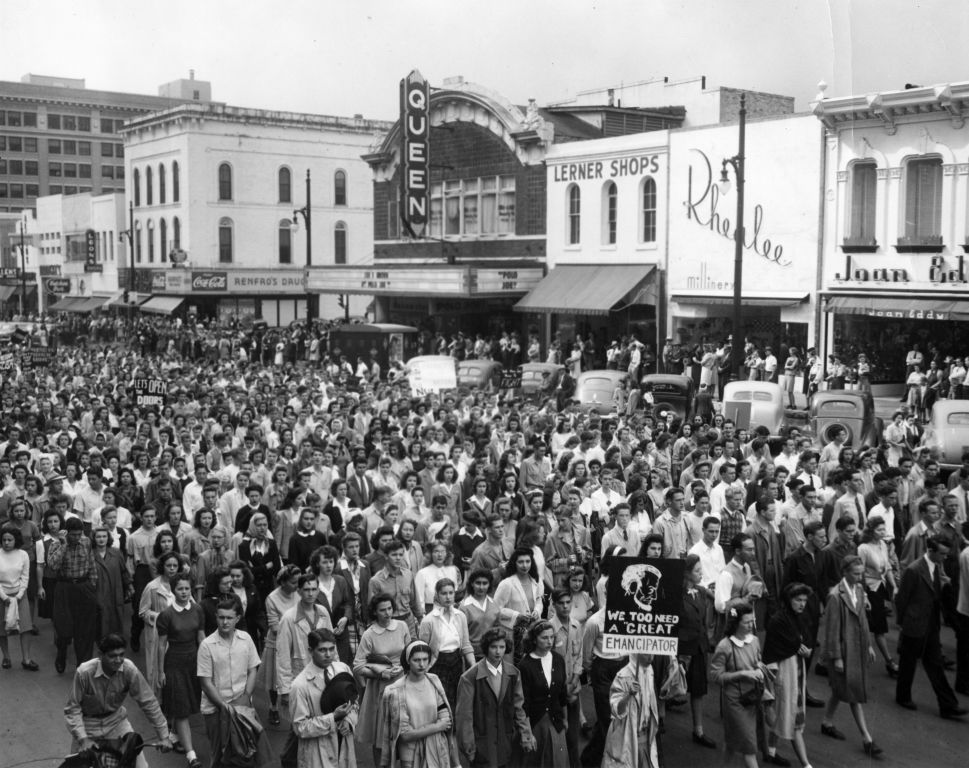
1947
The Tower bells chime “The Eyes of Texas” on the hour of John Sinclair’s burial.
1951
The Eyes of Texas Scholarship Fund is established with royalties from the song.
1954
The Longhorn Band records “The Eyes of Texas” on “Songs of UT” album.
1955
Hook ’em Horns hand sign is introduced and paired with “The Eyes of Texas.”
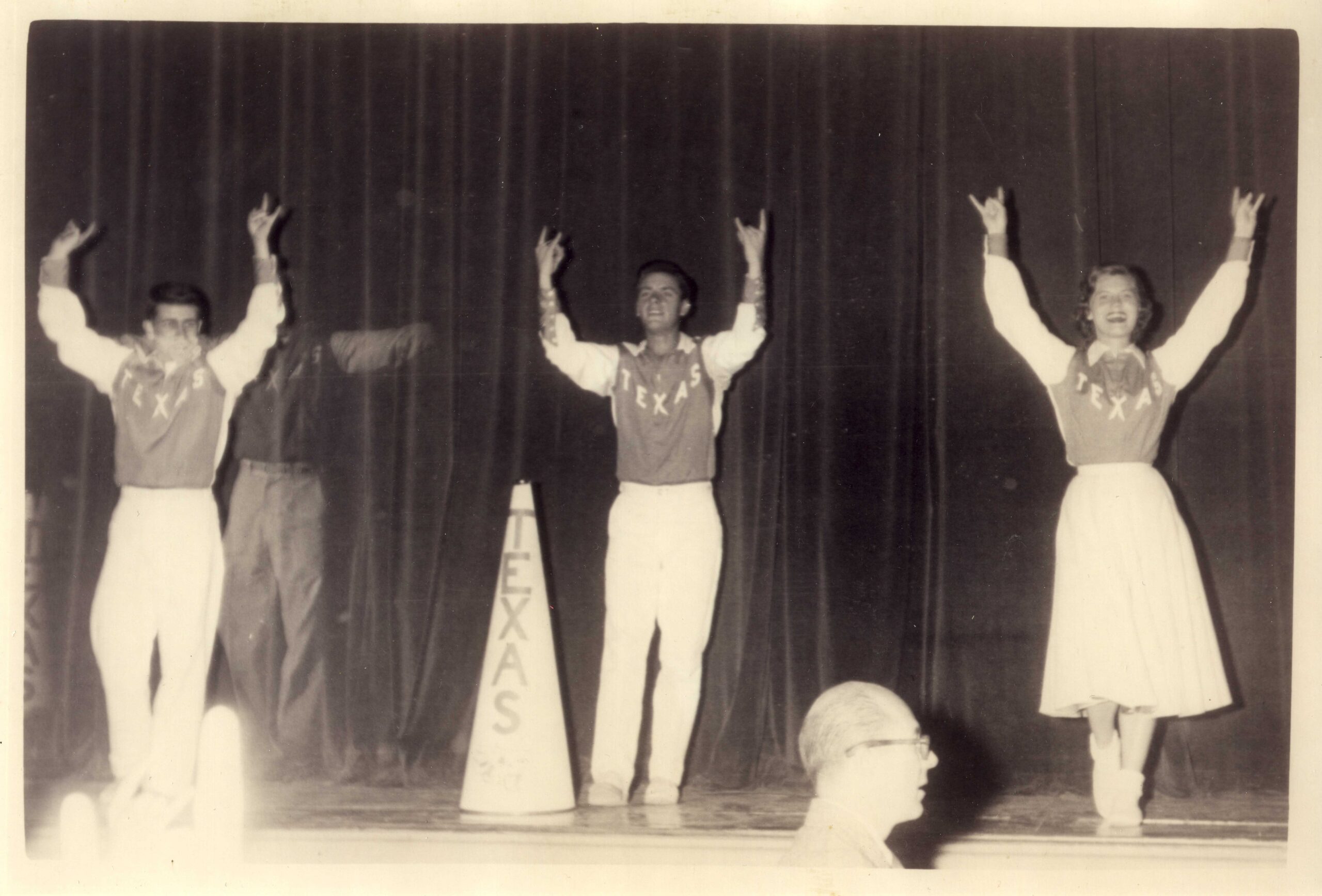
1961
The Longhorn Band performs song at JFK’s inaugural parade.
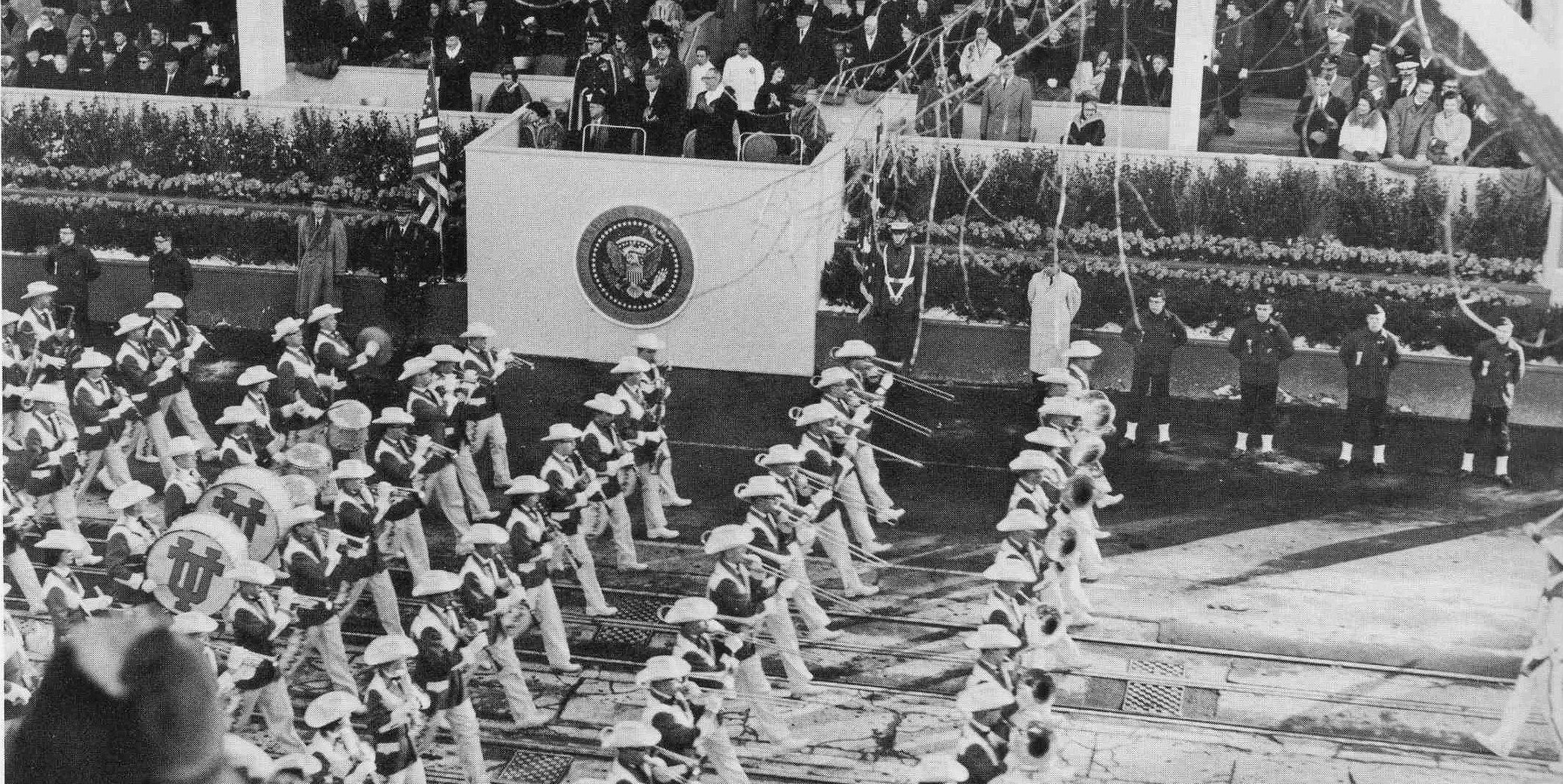
1963
Another attempt is made to make this the state song.
1964
U.S. Congress discusses the song’s copyright and how “central” it is to the state of Texas.
1965
The Longhorn Band performs song at LBJ’s inaugural parade.
1966
Mexican American farmworkers and clergy march from the Rio Grande Valley to the Capitol in Austin singing
“The Eyes of Texas.”
1967
The Longhorn Band records it on album of traditional songs and again in 1969.
1969
The song is transported to the moon. It is also used as wake-up songs for Gemini, Apollo and Skylab missions.
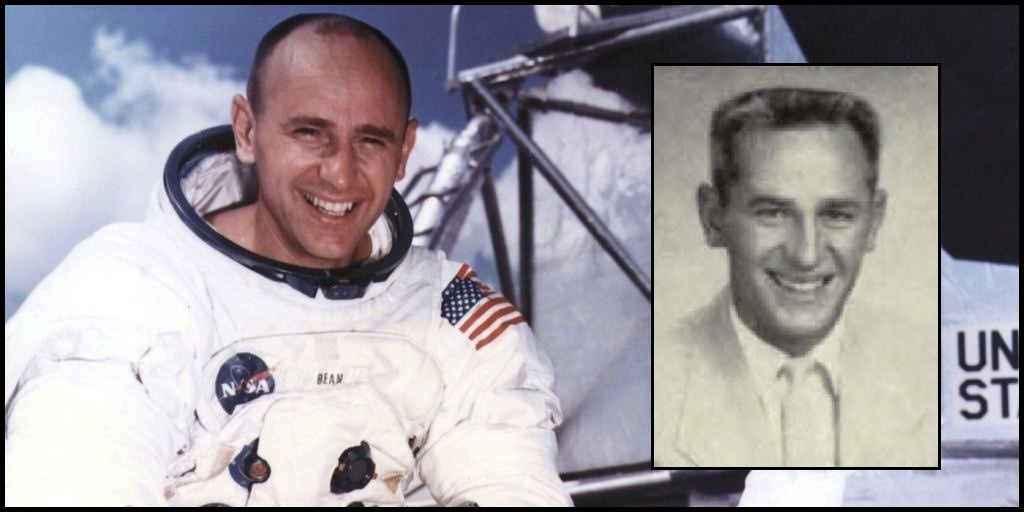
1972
After a Peruvian earthquake, the band performs for hundreds of thousands of Peruvians and includes “The Eyes of Texas.”
1974
The Longhorn Band performs “The Eyes” at Super Bowl halftime in Houston.
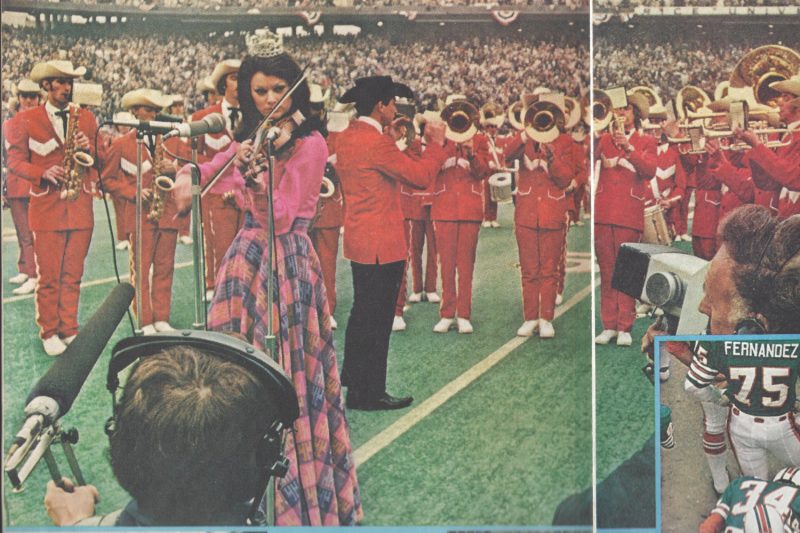
1975
"The Eyes of Texas” is sung to protest the naming of a new university president over the recommendation of a selection committee.
1978
The Longhorn Band records “The Eyes of Texas” for album of traditional songs.
1981
The Longhorn Band performs the song in Ronald Reagan’s inaugural parade.
1986
Arthur Gurwitz, president of Southern Music Company in San Antonio, re-secures copyright of the song for UT Austin.
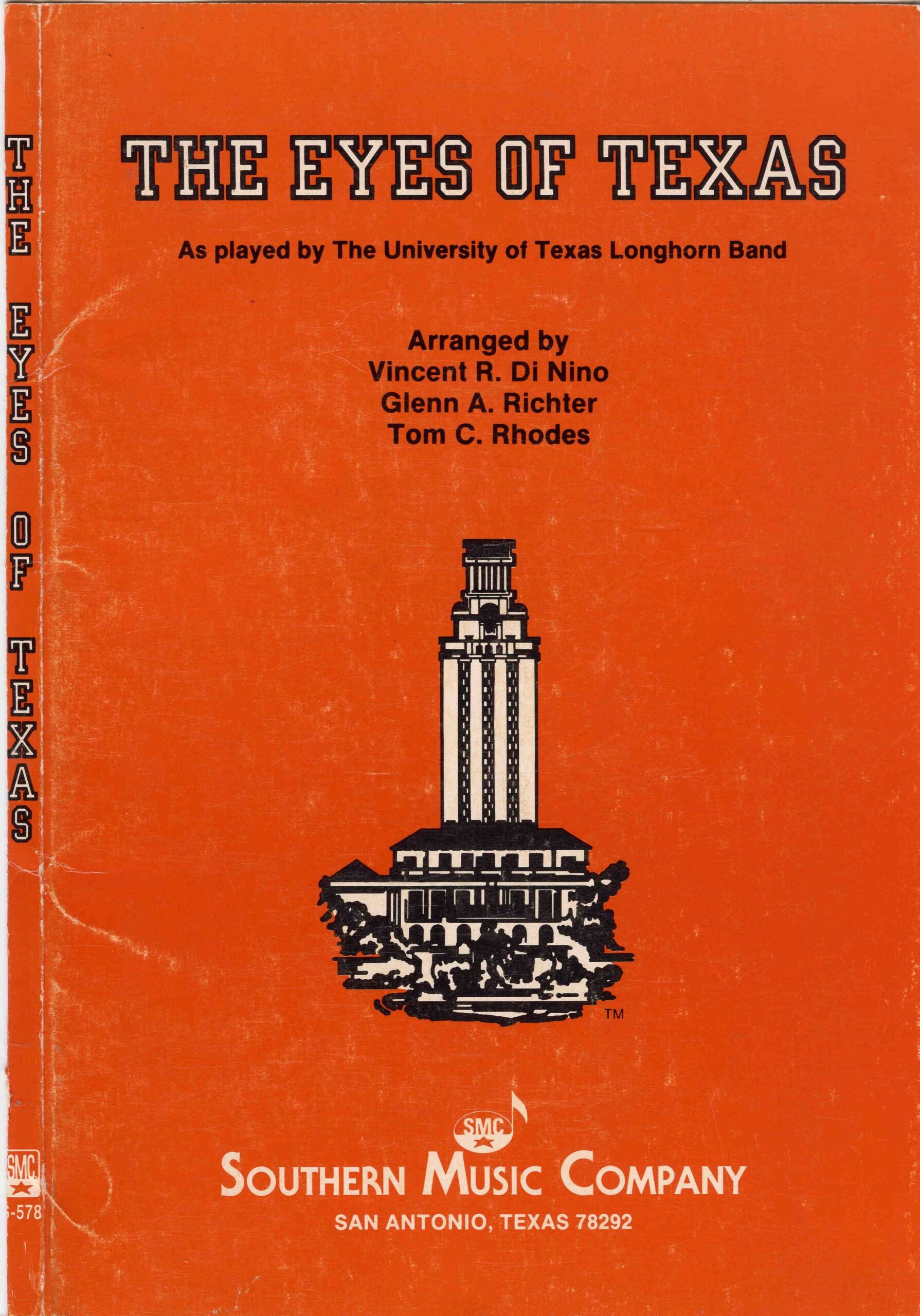
1986
The Hex Rally tradition is introduced prior to the University of Texas versus Texas A&M football game with the song performed three times.
1986
The song is performed at the funeral of John Hargis, a Precursor and first volunteer chairman of the Black Alumni Task Force of the Texas Exes, with “We Shall Overcome” followed by “The Eyes of Texas.”
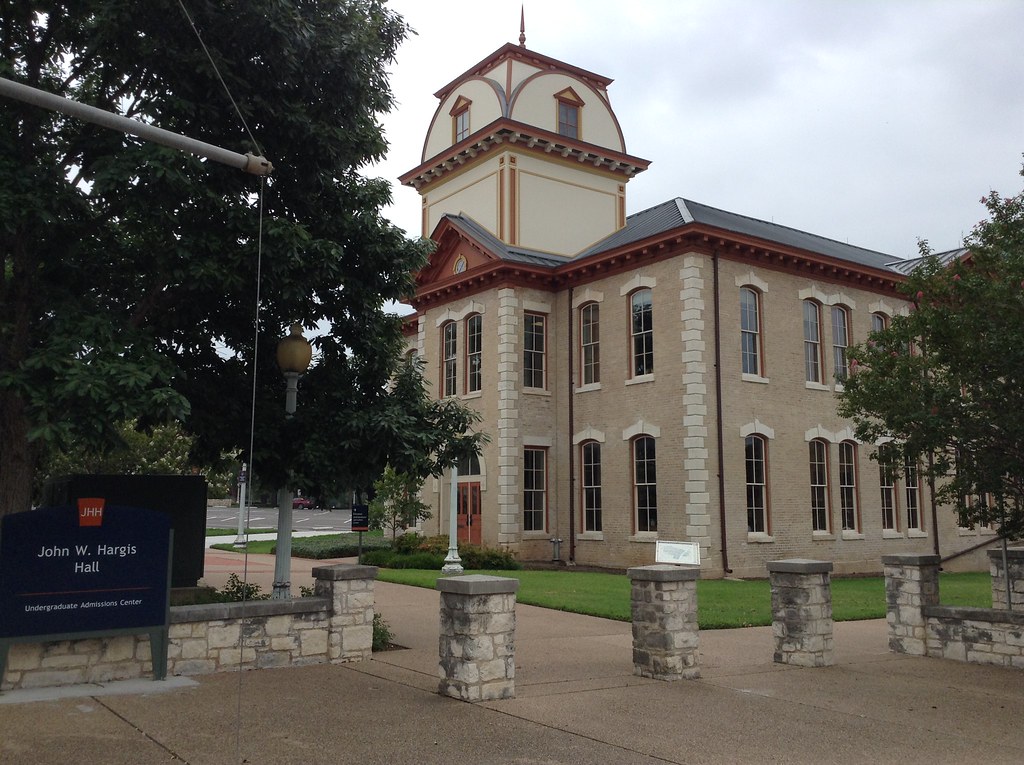
1999
The University of Texas and Texas A&M host Unity Rally after the Bonfire stack collapse tragedy by singing “The Eyes” and “The Aggie War Hymn.”
1999
Since 1999 the Longhorn Band performs “The Eyes of Texas” for Black Alumni Network Legacy Banquet.
2000
Alumna opera star Barbara Smith Conrad performs the song at Spring Commencement. Innervisions Gospel Choir (established 1974 as first Black non-Greek organization) performs a remix of “The Eyes of Texas.” Innervisions Gospel Choir performs a version of the song at “Gone to Texas” over a number of years.
2001
Longhorn Band performs the song in George W. Bush inaugural parade.
2003
In honor of the song’s centennial, the University of Texas System Board of Regents reaffirms "The Eyes of Texas" as the university's official song.
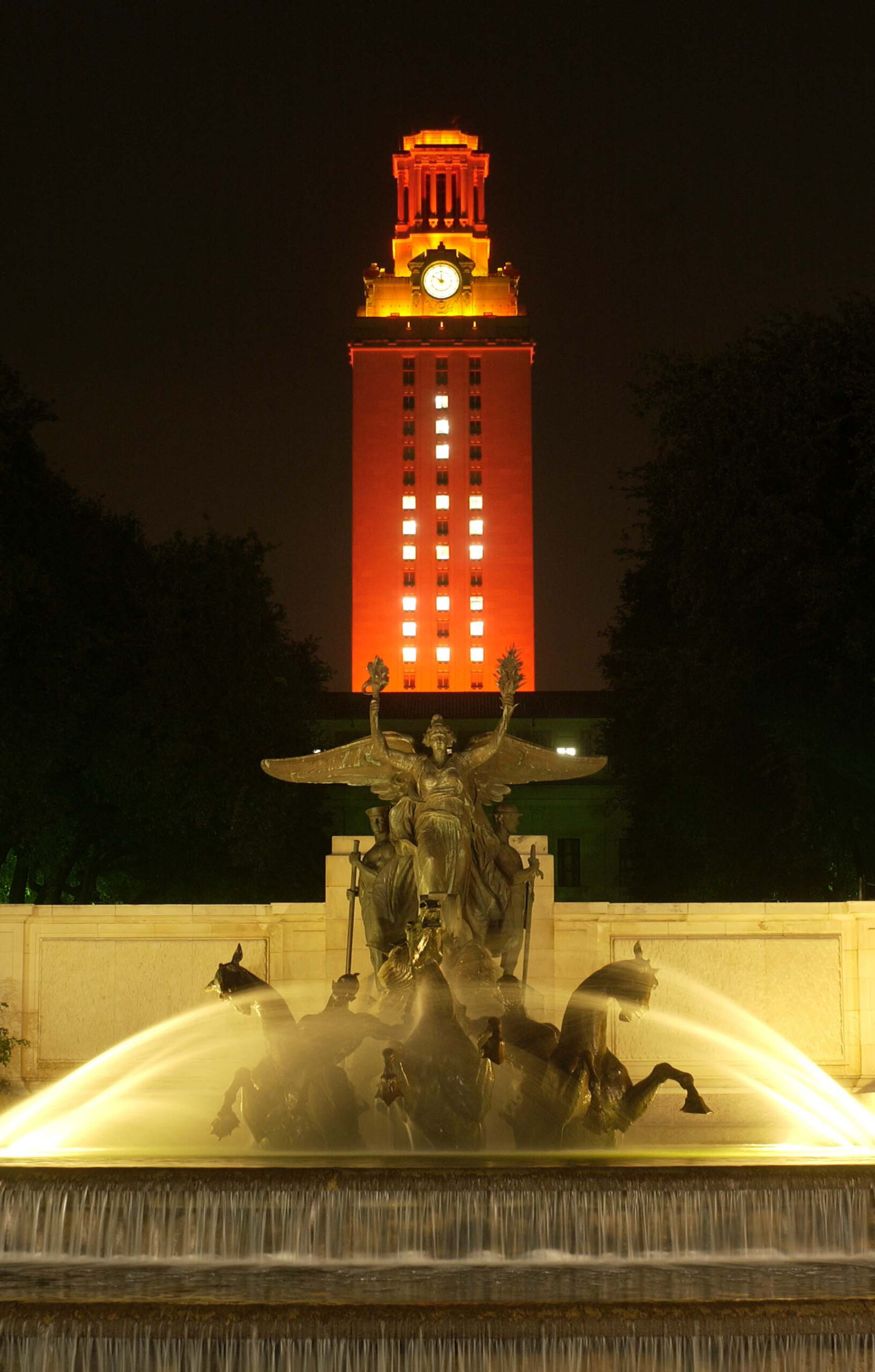
2012
The University of Texas purchases the publication rights to the song from Southern Music Company.
2015
Longhorn Alumni Band performs “The Eyes of Texas” in New Year’s Day parade in London, England.
2016
UT's Mariachi Paredes de Tejastitlan performs “The Eyes of Texas”
2019
Longhorn Alumni Band performs "The Eyes of Texas" at the 75th anniversary of D-Day in Normandy, France.
2019
NBC’s Late Night with Jimmy Fallon is broadcast from The University of Texas at Austin. During the week, rapper Gucci Mane performs a trap version of “The Eyes of Texas.”
2020
May 25, George Floyd is killed by a Minneapolis police, leading to worldwide protests of police brutality against Black Americans.
2020
Some UT student-athletes request that the university discontinue the song’s use.
2020
President Hartzell responds to student-athlete requests with campus changes, however, he confirmed “The Eyes of Texas” will remain the alma mater and stated his commitment to conduct a thorough study of the complete history of the song from The Eyes of Texas History Committee.
2020
The Eyes of Texas History Committee researches, studies and collaborates on its report responding to the President’s 4 charges.
2021
The Eyes of Texas History Committee presents its report to Longhorn Nation for deeper understanding and extensive dialogue in March.
